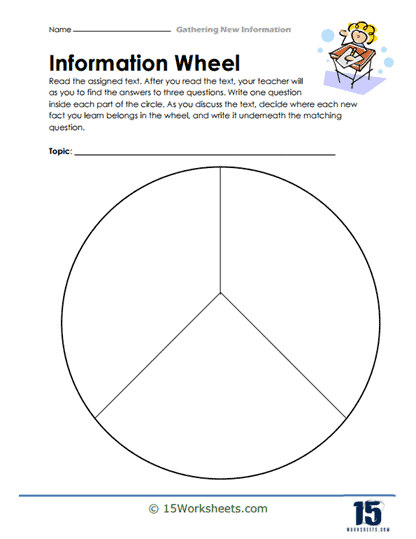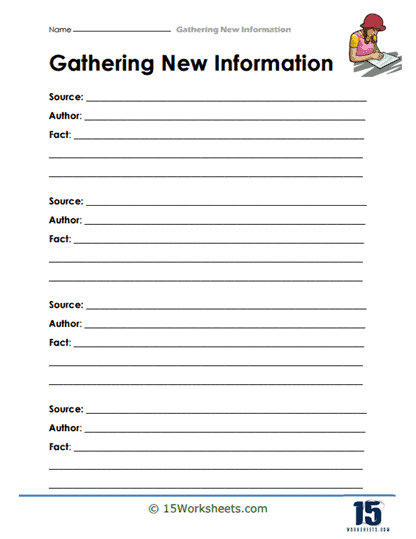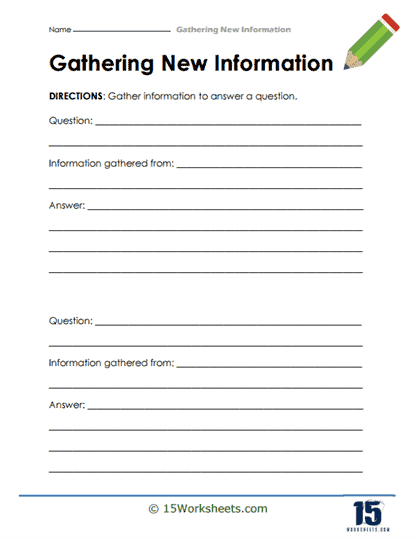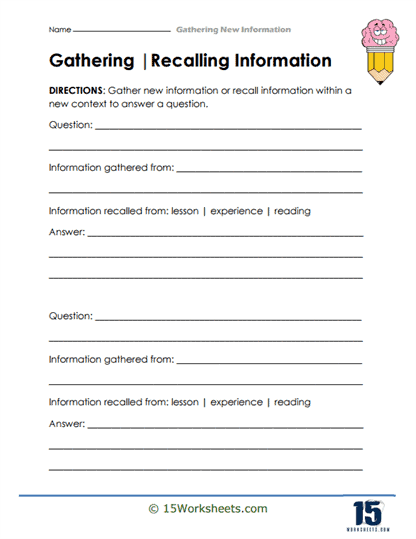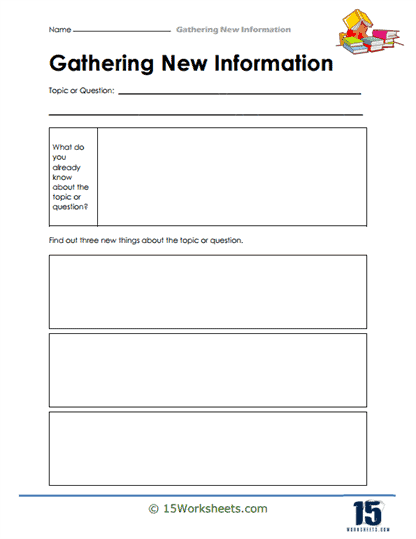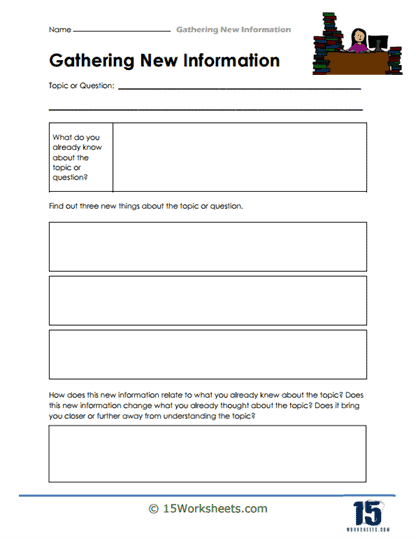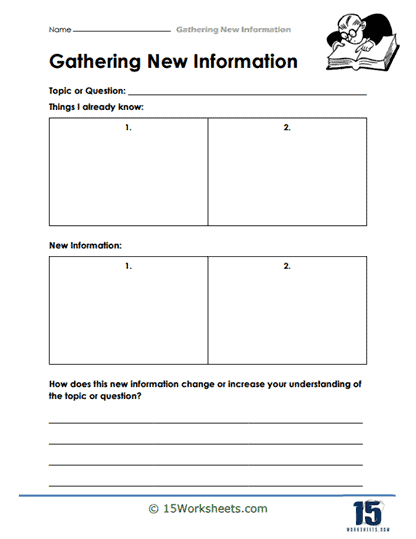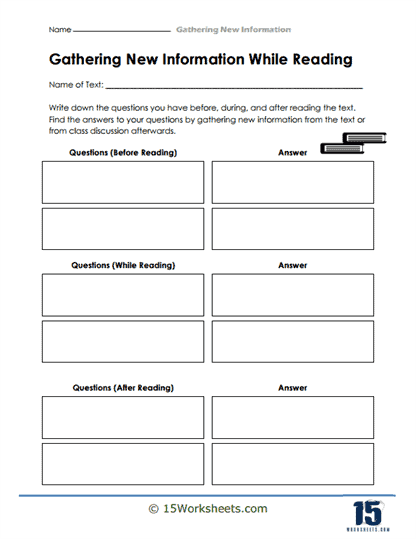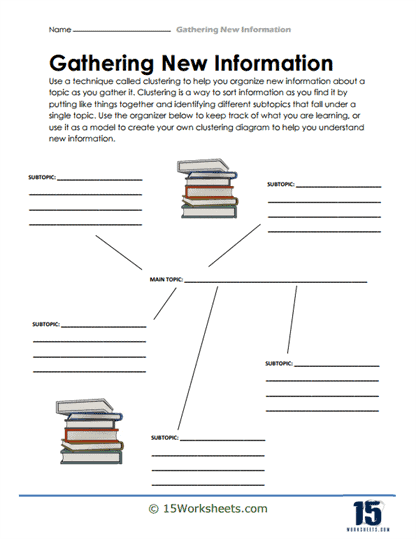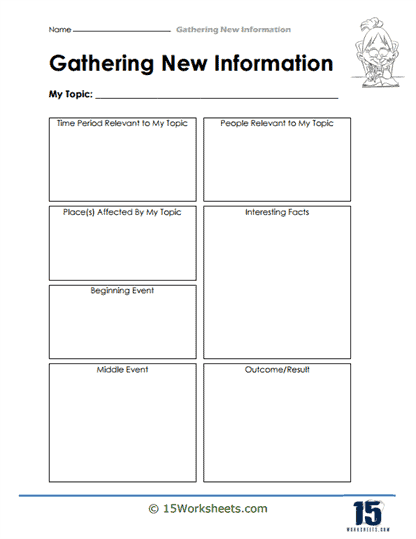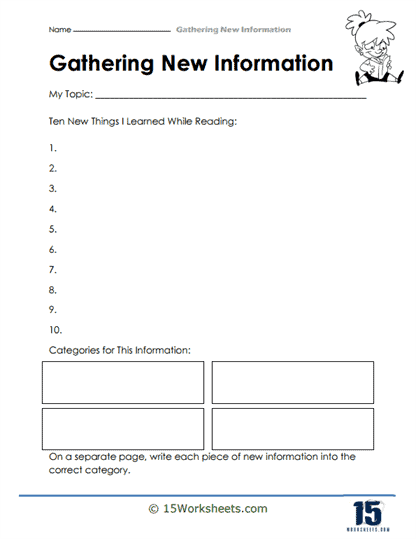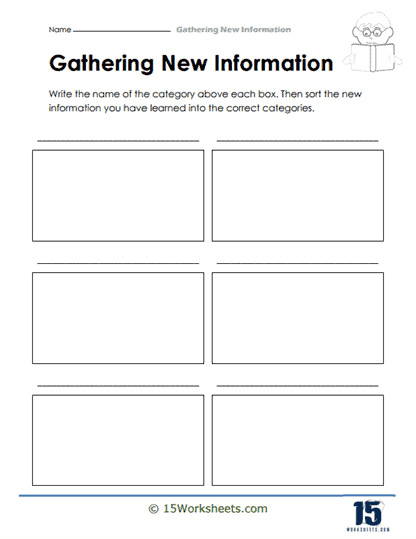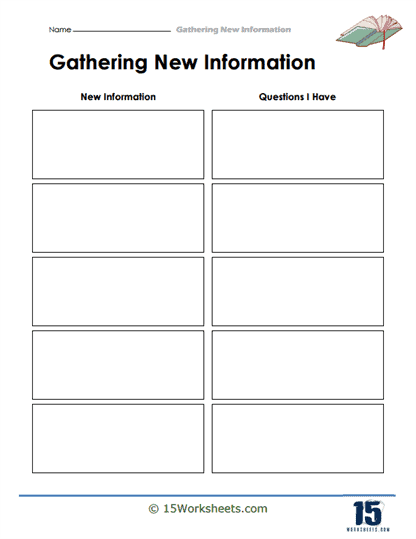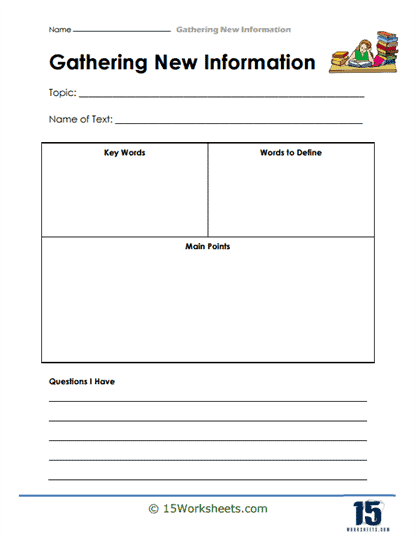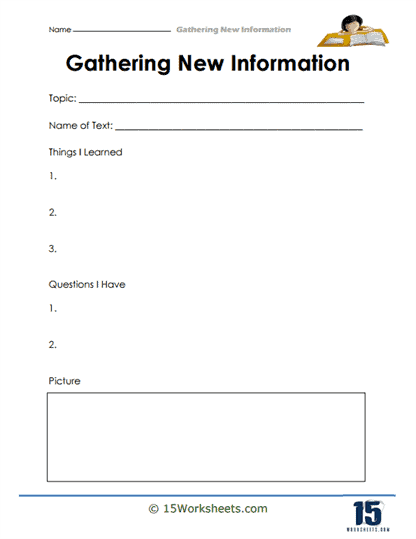Gathering Information Worksheets
All About These 15 Worksheets
This series of 15 worksheets focuses on developing students’ skills in gathering information effectively. These worksheets provide a structured approach to help students explore various sources, collect relevant and reliable information, and organize their findings. By honing their research and information-gathering abilities, students can enhance their analytical thinking, critical evaluation, and synthesis skills, enabling them to produce well-informed and compelling written work. Through these worksheets, students will:
- Be introduced to gathering information by asking questions about an assigned text and finding out their answers;
- Learn to take note of the sources of gathered information;
- Discover new things to learn about familiar topics;
- Practice inquisitive and active reading;
- Learn the importance of conducting thorough research and identifying reliable sources;
- Create outlines, concept maps, and develop note-taking strategies;
- And analyze gathered information.
Overall, this series of worksheets equips students with the necessary skills to gather and utilize information effectively. By teaching research techniques, evaluating sources, organizing findings, and promoting ethical information use, these worksheets empower students to conduct thorough research, think critically, and produce well-informed written work. Through practice and application of these skills, they also develop the ability to gather information with confidence, enhancing their academic and professional writing endeavors.
How to Gather Information About Anything
The internet can be a frustrating place to search for information. One phrase in, and you have to sort through all kinds of irrelevant information that can be overwhelming to read, not to mention a complete waste of time.
However, the secret to gathering information about absolutely anything is refining your search so that you can find relevant information every time.
1. Get the Right Search Engine
When trying to gather information about something, the search engine you use will have to sort through 240 million active web pages within seconds. Even though you might be used to one particular webpage, it might be time to branch out. Every search engine has flaws and blind spots, so it is vital to be vigilant.
The most common search engines are Google, Yahoo, and Bing. Google is known to have the biggest catalog of pages, along with a variety of results. Bing is known to have the best way of narrowing the search to provide you with relevant information. Lastly, Yahoo offers several other services like shopping and news.
2. Make Use of Keywords
If you want to find any type of content, your keywords must be specific and relevant. This will help you gather information about anything you want.
For example, let’s say you want to find a designer who can design a logo for your construction company. If you search “logo designer,” you will see many options on your screen. However, if you search “construction logo designer,” you will be left with relevant searches that you can actually use.
You can also refine your search further to include better keywords, for example, the location where you are so that you can find someone local to work with.
3. Make Your Search Terms Simple
It is likely that the search engine you are using uses stop words in its searches. This includes prepositions, conjunctions, and articles like in, on, of, but, and, the, and a. By using these stop words, more pages will appear in your search engine containing irrelevant information.
Hence, we would recommend getting rid of stop words from your searches. The only exceptions are when you have to search a name or title that includes these stop words.
Moreover, use keywords in their simplest form. Don’t use plurals and verb forms. For example, rather than typing in the word “services,” use the word “service.”
4. Make Use of Quotation Marks
When you use quotation marks to enclose a search term, the search engine searches for that particular phrase.
For example, if you search the word director, you will likely receive a bunch of results for directions, direction, and direct. However, if you search “director,” you are more likely to find what you are looking for.
5. Steer Clear of Search Pitfalls
When you try to gather information about anything, remember that many companies are working hard to improve their online visibility. This means changing the words of their websites so that they match the most used keywords. This process is called Search Engine Optimization (SEO).
Due to this, the sites that you find in the top five of your searches might have excellent SEO. However, it does not mean that they have good content. This means that you could use the best search terms but still look through many articles to find the best one.
With so much information and data at your disposal, gathering information about anything is easy. All you have to do is be opinionated and savvy and use these tricks and tips.

